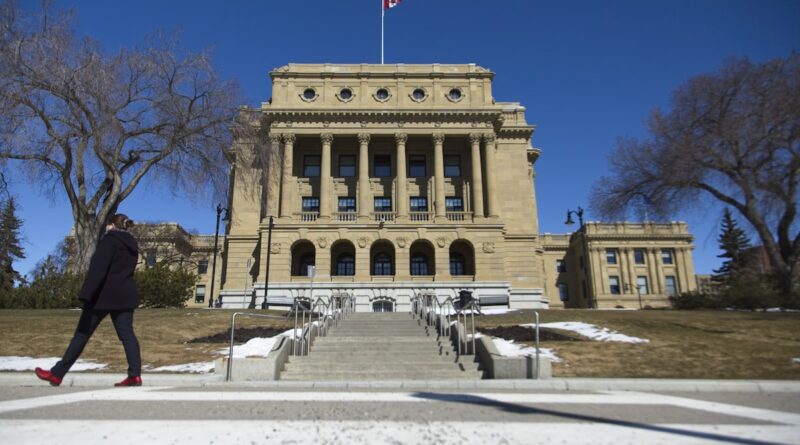Alberta government violated freedom of information laws, information watchdog finds
The Office of the Information and Privacy Commissioner’s 21-month investigation examined how 27 different public institutions in Alberta handled freedom of information (FOI) requests.Kaeden Dupre/The Globe and Mail
Alberta’s information watchdog has found that the provincial government violated its own freedom of information laws by relying on illegitimate reasons to withhold records, a decision that follows a multiyear reporting effort by The Globe and Mail’s Secret Canada project.
The Office of the Information and Privacy Commissioner’s 21-month investigation examined how 27 different public institutions in Alberta handled freedom of information (FOI) requests, including multiple requests from The Globe in 2022 and 2023.
The government had repeatedly rejected The Globe’s FOI requests, arguing that it did not have to process them because the records being sought did not exist in the exact format that The Globe had requested.
The information watchdog’s investigation found that government departments had claimed FOI requests lacked the detail necessary for processing. It also said departments had limited how long they would search for records, required requesters to stick to a single topic in their requests, required them to split up requests containing multiple topics, and required them to structure FOIs so that they could be completed within 30 days.
None of these decisions were compliant with access law and policy, the investigation found.
In her decision, Information and Privacy Commissioner Diane McLeod rejected the government’s arguments outright.
“Accountability is the cornerstone of the exercise of good governance,” Ms. McLeod wrote in her introduction to the decision. The government, she said, “has adopted practices and interpretations that do not align with the purposes of the Act and, as I have found, are non-compliant.”
A spokesperson for Service Alberta said the government has received the report and is considering its findings.
“We’re committed to openness and transparency, and we are proud of our record,” Osagie Ogunbor said in an e-mailed statement. Mr. Ogunbor said that in 2023-24, 97 per cent of requests “were handled without complaint to the OIPC.”
Freedom of information laws – sometimes called freedom of information or right to information legislation – exist in countries around the world and throughout Canada at the federal, provincial, territorial and municipal level.
They enshrine into law the principle that people have a right to know how their public institutions are being run and how tax dollars are being spent. These laws do this by allowing the public to make official requests for documents, which must then be disclosed with limited exceptions.
The Globe and Mail’s Secret Canada project, launched in 2023, found that public institutions are routinely breaking access laws by violating statutory time limits, overusing redactions and claiming no records exist when they do.
They face few, if any, consequences for ignoring the precedents set by courts and information commissioners, the government-appointed watchdogs responsible for monitoring the system and mediating disputes.
During its investigation, The Globe conducted an audit of FOI requests processed by federal, provincial and territorial ministries and departments. To collect this data, The Globe filed access requests for the data in governments’ internal FOI tracking systems, which log when requests are received and completed, descriptions of what requesters have asked for, and their dispositions – for instance, whether information has been released or withheld.
But when The Globe filed its requests to Alberta in 2022, the government denied the requests altogether. It was the only government to do so.
Alberta claimed it did not have to process the requests because “no records” existed – despite the fact that the province had an internal tracking system and database for FOI requests.
When The Globe inquired about the discrepancy in 2023, government officials clarified that they would have to “create a record” to fulfill the request, which they said was outside the scope of their obligations.
In 2023, The Globe filed another set of requests to the province for data on its FOIs, and was once again rejected.
After the rejection, Jill Clayton, a former Alberta information commissioner who retired in 2022, called the government’s decision “really frustrating and tremendously disappointing.”
The Alberta watchdog’s investigation is the second finding by an information commissioner tied to the Secret Canada project.
Thirteen ministries in Saskatchewan previously refused to provide The Globe with spreadsheet files, sending records in PDF format instead. The Globe appealed the decision, and won last year. The ministries ultimately refused to comply with the information commissioner’s decision.

